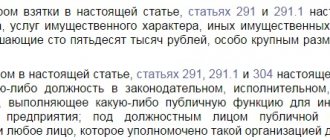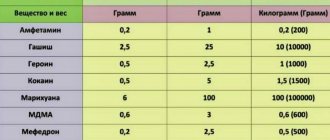ST 316 of the Criminal Code of the Russian Federation.
Concealment of especially serious crimes not promised in advance - shall be punishable by a fine in the amount of up to two hundred thousand rubles, or in the amount of the wages or other income of the convicted person for a period of up to eighteen months, or by forced labor for a term of up to two years, or by arrest for a term of up to six months, or by deprivation of freedom for up to two years.
Note
. A person is not subject to criminal liability for concealment of a crime committed by his spouse or close relative who was not promised in advance.
What harm does secrecy cause?
Crime is the scourge of our state. Secrecy in this case will not bring laurels of heroism to the person who hides the criminal. Legislators are developing provisions in the Criminal Code to reduce banditry and the consequences that it brings. It is possible to overcome this negative phenomenon, at least partially, if criminal cases are solved and punishment becomes the principle of inevitability. Concealing a crime is a negative and dangerous factor that does not allow the justice authorities to speed up the retribution procedure. All processes in life are interconnected. Perhaps one day a loved one will suffer because the source of evil was not eradicated in a timely manner. Government bodies are strong, and their actions are successful only in a single connection with the population, voluntarily provided assistance in all aspects. Concealment of crimes as a legal fact will noticeably decrease when a society is created that thinks in the following categories:
- assisting justice is a civic duty;
- every normal person must have moral obligations to his own country;
- when the criminal is convicted, he will not kill anyone again or commit violence.
In order for residents to actively support the activities of law enforcement agencies, very little is needed - trust.
Advantages and disadvantages of the law
Now let’s summarize a little of everything discussed earlier. It is obvious that such a law was adopted with purely good intentions. But in fact, the result was not quite what ordinary people would have wanted. For the sake of objectivity, we will consider the strengths and weaknesses of Article 205.6 from the position of an ordinary citizen who has decided to report an impending crime or is afraid to do so. Let's start with the positive. The advantages of the law include:
- The civic duty of each of us is to, to the best of our ability, prevent dangerous crimes committed against the people, country, individual citizens, etc.;
- you provide significant assistance to government organizations and law enforcement agencies, reducing the level of terrorist threat in the country;
- It is you who can be a source of incredibly valuable and useful information, as a result of which it will be possible to prevent a serious crime and punish the perpetrators.
But not everything is as ideal and patriotic as it looks at first glance. The law also has its shortcomings. The main factors due to which Russian citizens do not agree with this law and are afraid to report crimes are:
- Law enforcement agencies may have many questions about where you got this information from and why you are so well aware of the impending terrorist crime. They will begin to be interested in data sources, they can follow you for a long time and control your life.
- Sometimes people who report potential crimes become so-called unnecessary witnesses. This is extremely dangerous, since representatives of the party you have accused of terrorism may start hunting you. Many people are afraid of this, even among those who have 100% truthful and up-to-date information.
- If your identity is established, data that you would not want to talk about and keep everything in the strictest confidence may be revealed.
- The information you provide may not be accepted by law enforcement agencies.
In fact, people are afraid to report any serious and important information related to crime and terrorism to official bodies, law enforcement agencies and departments. Everyone is afraid of retribution and does not want to turn from a hero into a criminal. After all, disclosure of information is not always in the interests of the state itself. Non-reporting, as a reason for opening criminal proceedings, objectively does not stand up to criticism. This is a highly controversial and potentially very dangerous law that can lead to dire consequences for the integrity of society.
By what indicators is staging recognized?
Concealing a crime in the Criminal Code of the Russian Federation, like any illegal act, has its own characteristics. First of all, this phenomenon will be indicated by circumstances based on:
- events;
- facts;
- traces;
- behavior.
The concept is characterized by contradictory indications in comparison between reality and lies. By distorting facts, a person points to material objects that affect his behavior. In this case, eyewitnesses can have information and convey information to the investigator. Investigators will work with the scene of the incident and real witnesses. There are many sources, so hiding traces of a crime will not always lead to the desired goal. At the scene of the incident, signs will reveal the lie:
- traces will never completely disappear; if they actually existed, a real detective will definitely find them;
- Lawyers call planted footprints and handprints traces of fictitious presence;
- falsifiers cannot convey the elements characteristic of the case; they lack the real type or quantity.
The investigation may drag on and go in the wrong direction until the details of the real facts become clear. Delaying the process for a long time is the whole problem and the purpose of concealing a crime, and, of course, the desire to avoid responsibility by all means if the criminal covers his own tracks. It is necessary to take into account the completely different responsibilities, methods, goals, and methods of concealing acts. They are contained in the character. When a citizen hides his own crime, gives false testimony, covers his tracks. Article 316 indicates offenses committed by some persons, while others tried to hide them, without agreeing on this in advance.







